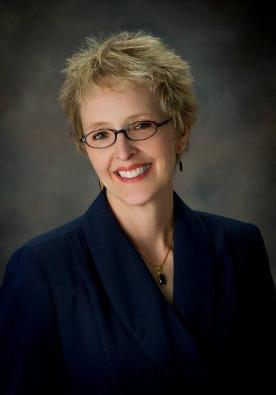For Oakland University’s Deborah Doherty, P.T., Ph.D., helping cancer patients regain a sense of their normal life is of paramount importance, both personally and professionally.
A cancer survivor, Dr. Doherty is currently working with a variety of Oakland faculty and students on several oncology studies designed to improve the quality of life for cancer survivors through physical therapy rehabilitation.
“Assisting cancer survivors is a cause that is near and dear to my heart,” Dr. Doherty said. “Life is never the same after a cancer diagnosis. Everyone who undergoes treatment for this disease has to find and adjust to their ‘new normal.’ There are many ways to cope with these changes, and incorporating physical therapy practices helps patients to regain a sense of confidence in their lives.”
With more than 12 million survivors today, cancer treatments are consistently improving success and survival rates. However, radiation and chemotherapy treatments have a number of debilitating side effects that decrease the quality of life for many survivors.
Oakland’s groundbreaking physical therapy studies are designed to target specific areas that cancer patients struggle with, such as fatigue, pain, muscle weakness, decreased endurance, stress, fear of recurrence and the ability to cope with the long term changes to overall wellbeing.
Each study demonstrates and quantifies a different aspect of these side effects, and provides a unique research opportunity for physical therapy doctoral students. Dr. Doherty is currently serving as a faculty mentor for four separate university studies.
- One study seeks to establish a screening procedure for individuals receiving radiation therapy to determine their rehabilitation needs. Dr. Doherty’s team has devised a screening tool - the first of its kind - that will quantify the side effects present in individual patients, and set them on the path to recovery.
- Another study analyzes the effectiveness of a Comprehensive Cancer Rehabilitation Program (CCRP) from the point of view of a cancer survivor. Participants undergo a rehabilitation program, record their physiological changes before and after, and then offer individual feedback in a survey.
- One common side effect of cancer treatment is commonly called “chemo brain.” After chemotherapy, many patients become forgetful and lose confidence in their memory and functioning skills, and suffer a severe mental decline. Dr. Doherty’s grant-funded study proscribes exercise and a drug called Donepezil, commonly used for Alzheimer’s patients, to combat this effect.
- Lastly, the department is conducting a study that investigates the use of a digital inclinometer device to assess and measure shoulder function in breast cancer patients before and after surgery, including mastectomy, lumpectomy and/or axillary lymph node dissection.
At the same time, Dr. Doherty, along with Dr. Jacqueline Drouin, associate professor in the OU Physical Therapy Department has worked to develop a breast cancer survivor’s exercise group at the OU Rec Center. Over the course of 26 weeks, participants learned a wide variety of fitness tips and techniques, from yoga and tai chi, to swimming, circuit training and boot camp programs. Students provided assistance and educational information for survivors, helping them to understand their condition and learn about the exercise options available.
Many of the studies involved patients at St. Mary’s of Michigan, where Dr. Doherty practices as an Oncology Rehabilitation Specialist two days a week. Oakland DPT students have a unique opportunity to participate in cutting edge research in real world settings.
“Our DPT students are so well-prepared when they graduate” Dr. Doherty said. “Like all medical professionals, our research is essential to evidence-based practice. Our students learn all aspects of good research throughout the program making them fully prepared to practice at the highest level of care. They provide evidence based practice to all their patients and expecting nothing less from the medical professionals they work with."
“As cancer treatments are improving survivorship, the next step is to improve the quality of life for survivors. Our rehabilitation interventions help patients feel better, return to work and to their lives sooner,” she continued.
The discussion will continue this August, at the third annual Oncology Rehabilitation Symposium. Geared for physical therapy professionals, the symposium will consist of lectures and laboratories designed to provide participants with information and skills related to clinical management of individuals living with, living through, or living beyond cancer. The presentations this year will include functional massage, oncology nutrition, and emotional support techniques. The symposium is set for Friday, August 24. Participants who register before Wednesday, August 15, are eligible for a discounted rate. For more information or to register, view the website at
oakland.edu/pace/shs.
Next on the docket for OU’s Physical Therapy program is a new online Oncology Rehabilitation Certification Program for physical therapists, set to launch this fall. The program offers a specialization in treating oncology patients, and will be the first rehab certification program worldwide.
For more information about programs, studies or events in Oakland’s PT program, view the website at
oakland.edu/shs/pt.

